It is official — pub food is no longer a dirty term. Gone are the days when pub dining was synonymous with spotty teens, dirty plates and microwaves. Instead, the pub is now a popular and vibrant option for people who want to go out for a good meal.
This is down to several factors; the growth experienced by the eating-out sector after the recession, the rise of social media and contemporary foodie culture, and diners’ new-found obsession with seasonality and provenance, to name a few.
Most importantly though, the quality of food you can eat in many pubs now rivals some of the best restaurants — and that’s thanks to the chefs.
“Good value food and drinks” was found to be the number one reason consumers decided to visit a pub during the past year, according to M&C Allegra Foodservice’s Pub Market Report 2015. The operative word here is “value” — rather than wanting “cheap” food, consumers want great food at a good price and pubs provide the ideal platform to meet that desire.
The past few years have seen an increasing number of skilled chefs entering the licensed trade, taking on their own pubs and becoming chef-patrons of their own businesses.
But it’s no small task taking on a pub — with it comes front-of-house management, people management and, in some cases, serious renovations and financial considerations on top of running a professional kitchen. So where does an aspiring chef-patron start?
The great British pub
Mark Anderson, chef-patron of Star Pubs & Bars lease the Ruddington Arms, near Nottingham, began his culinary career as a pot washer in his native Newcastle before realising he loved the adrenaline of cooking.
He worked his way through various high-end restaurants, taking on roles in some of the country’s top kitchens and becoming director of a small restaurant group before deciding he wanted to strike out on his own and open a food-led country pub.
“The way we eat now in this country has changed a lot,” he says. “We’re so into our British produce and that’s intrinsically connected with the British pub.
“So many chefs are realising that and are going into the pub scene doing good, honest food, cooked correctly in a nice, relaxed environment. There’s no stuffiness [in a pub] and you won’t be patronised by a waiter because you’ve chosen the wrong wines. If you want to have a pint with your scallops then so be it.”
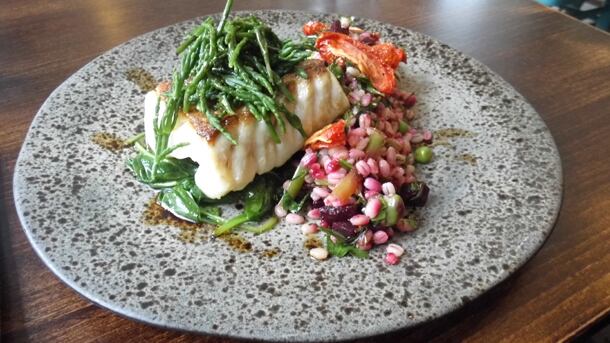
Anderson says he would recommend taking on a pub to any head chef wanting to run their own business.
“Of course, I would recommend getting a pub to anybody,” he says. “As long as you’ve had the experience as a head chef for long enough — because you’ll spend 20 years learning how to cook and then, all of a sudden, you’re thrown into this management position.
“I think that taking time in management, is really important and some people take that jump too soon and that’s where you see a few failures.”
Anderson says man management is the key skill that prospective chef-patrons need to learn above anything. “You’ve got to have a good team around you,” he says. “You can’t do it on your own.”
Menu design
For Anderson, designing a menu for a pub requires a fundamentally different mindset to designing one for a restaurant.
“You have to make sure you’re capturing every market in which customers could want to eat,” he says. “So we open for breakfast, brunch, and then, at lunchtime, we have a selection of sandwiches and large salads — lighter options that start at about £6.
“So if you’re on business or you’re retired and you just want a quick bite to eat, that’s there. But we’ve also got an à la carte menu if you’re celebrating. At night, we only offer the à la carte.
“I try not to restrict anything,” he adds. “I don’t want it to be formal. If you want to sit at the bar and have a three-course meal, that’s absolutely fine. And if you want to have fish and chips in the restaurant with a beer that’s absolutely fine too. You need to have broad appeal.”
Know what you want
Anderson says chefs should have a clear idea of what they want from their business before starting the process of taking on a pub.
“I was looking for a place that was run down, that had no existing customers that would complain about how things used to be done there,” he says. “Somewhere that we could do up from a blank canvas.
“I decided that I wanted the pub to be very accessible. I didn’t want it to alienate anybody and I think that’s worked because we get the white van men and Ferrari drivers in, and everyone else in between — a broad spectrum of clientele. I didn’t want to make it too top-end, exclusive or expensive and maintain a good, moderate pricing structure.
“Star Pubs & Bars’ initial investment was key,” he says. “Working as a chef, it’s very hard to earn good money. So you need that initial investment from [a group].”
Renovating the site to fit Anderson’s needs was no small task. The bar was moved, the ceiling opened up and several of the walls moved to create space.
“Obviously [Star] has expertise in doing pubs up as well,” he says. “I had a whole team of designers and builders all working together. We spent a lot of time at that stage, making sure I got the feel for the place I was looking for. They just helped us get that on paper.”
Check out our exclusive video interview with Mark Anderson
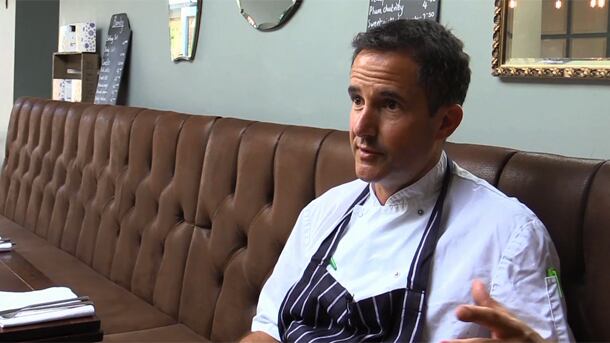
Experiencing the trade
Having experience — no matter how little — in the pub sector before taking on a site can be of massive benefit, according to MasterChef: The Professionals winner John Calton, chef-patron of the Staith House, in North Shields, near Newcastle.
“One of the key things for me was I worked in a pub — and not just any pub but at the Star Inn (Andrew Pern’s acclaimed site in Harome, York),” he says. “And that was exactly the kind of place I wanted to create for myself.”
For Calton, working with Pern was massively inspiring. “I’ve worked in restaurants since then but it was that experience that made me want to own a pub,” he adds.
The experience also served to teach Calton about the different restrictions pubs face when designing menus compared to restaurants.
“Sometimes you can’t have certain ideas on the menu on a day-to-day basis because there are different expectations from the customers,” he says.
“To counteract that, we do a tasting menu once a month where we put dishes on our menu that we’ve been inspired to create but wouldn’t get to do otherwise.”
Total overhaul
Before Calton took on the Staith House, a Star Pubs & Bars lease, two years ago, it was known as the New Dolphin.
“It was run down,” he says. “And without being disrespectful, I think it had lost its way a bit.
“We saw it was up for lease, got in touch with Star and they liked what we suggested, which was to do a food-led pub and occupy a gap in the market — all the other pubs in the area were wet-led.
“They told us if we took it for six months in the state it was in, they were willing to plough in £300,000 and refurbish the place, which was beyond our wildest dreams at that point. We were prepared to just give it a lick of paint and ask them to put a stove in and we were going to open the doors.”
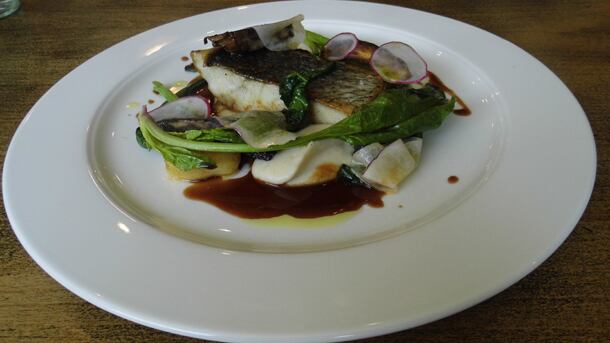
Calton says the most important part of his business plan was finding the right location.
He says: “Here we get first-class scallops, crabs, langoustines — all of the produce is here. And the produce on your doorstep is always what goes on your menu.
To add to that, Calton says that without a good location, you’ll have to do a lot more on the PR side. “When we first arrived in the winter there were blizzards, but the fish quay was still packed.”
But getting the business going was still a challenge.
“As a chef, it was the first time I had run a business, which was quite daunting,” says Calton, adding that the biggest issue to overcome was finding the right people and dealing with a high staff turnover.
But now that Calton has a settled team, his focus is on keeping them up to date with the food offer.
“Sometimes a member of staff won’t have heard of some of the ingredients we’re using or the techniques,” he says. “So whenever we change any of the terminology we have a briefing and a tasting. It’s a lot easier to sell something if they know what it tastes like and can recommend it.”
Check out our exclusive video interview with John Calton
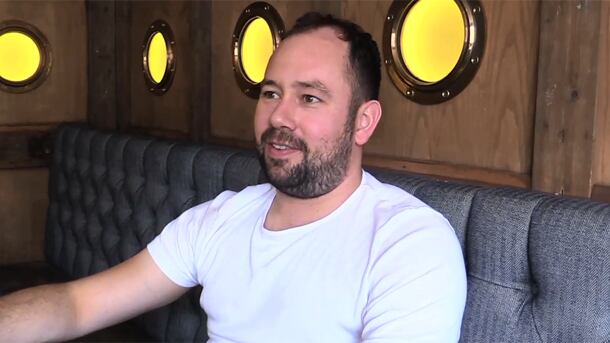
Determination
“The worst thing you can do is take a busy, thriving boozer and turn it into a poncy gastropub charging £20 for main courses,” says Stephen Harris, chef-patron of Shepherd Neame lease the Sportsman, in Seasalter, Kent.
Harris left a successful career in the city as a financial adviser to take a job as a commis chef for £8,000 per year to prove his chops — with an eye set on opening his own restaurant. Within a year and a half, he was a head chef and looking to take on his own site.
When he took on the run-down Sportsman in 1999, no one would have guessed it would become the Michelin-starred, award-winning foodie mecca it is today.
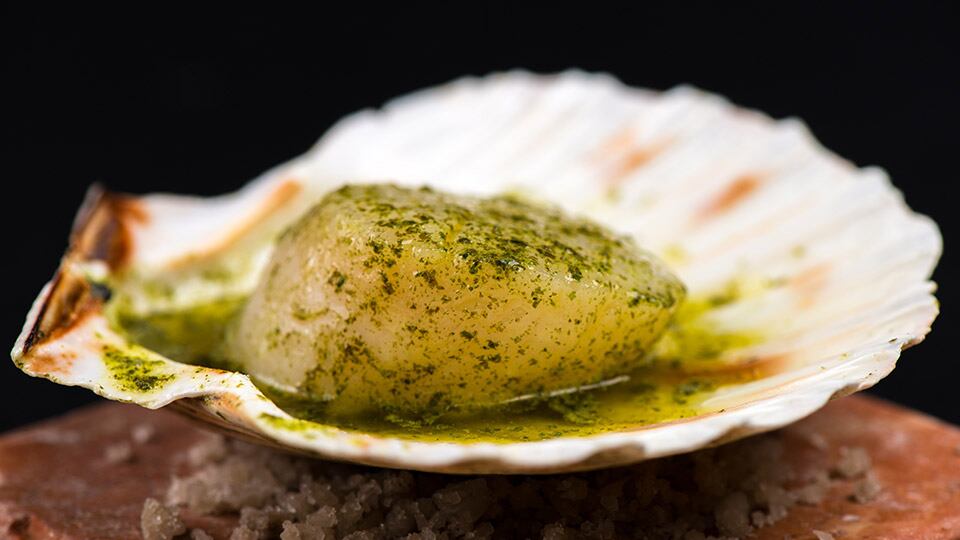
“The most important thing is the pub you choose,” he says. “I’d worked in pubs as a head chef before so I understand the dynamic — the locals own the pub, you don’t.
“You are merely a tenant passing through years of history. That old geezer will let you know if he only likes jugs for his pint, so if you can find a pub with no locals, that’s the trick.”
He says the best course of action would be to take on a pub that’s “totally dead” because no one can complain about what you’re doing.
The Sportsman was not in good shape when Harris took control. “It looked tragic,” he says. “There were horrible net curtains, stains everywhere and a dolly rail along the bar. But I sat in the back bar and thought ‘this is it’.”
Harris says the biggest challenge was the pressure of opening as quickly as possible for as little money as possible. During the seven days after he got the keys to the Sportsman, he completely emptied the interior of the pub, had tables made and deep cleaned the kitchen.
“The kitchen was a nightmare — me and a mate went in, ripped everything out and went over to France to get a bit of equipment because it’s cheaper over there,” he says.
But seven days later, the pub was serving food. Harris’s peers now include Noma’s René Redzepi, who has visited the Sportsman several times.
“You have to find somewhere that is failing in its current form,” he says. “Somewhere that can’t work as a pub.
“Here we have an enormous pub with loads of land and it’s right by the sea, but it couldn’t operate. It couldn’t take enough money.”
But these days, Harris says: “We take more money in the first half an hour of Tuesday lunch service than it used to take in a week.
“And that’s the justification if we’re going to live in a capitalist economy,” he laughs. “Lots of people said we’d fail, but the ultimate judge in this situation is the market.”
Most importantly, though, he says: “Stick to your guns if you have a clear vision. I used to doze off at night and visualise somewhere like this. I had visions of bright light coming from all directions and waiting staff carrying out white plates with vivid coloured food. And once you have a vision of what you want, all you have to do is work towards it.”
Proving grounds
Tom Kerridge, chef-patron of double Michelin-starred Greene King lease the Hand & Flowers and Enterprise lease the Coach, both in Marlow, Buckinghamshire, believes you have to prove yourself when taking on a pub as a chef — and this requires a solid business plan.
“You have to prove yourself and prove that you can run that business,” he says. “People give pub companies a hard time about not giving them a fair break but you know how much your rent is and it’s written there how much your beer is — you have to work your business plan accordingly to those prices.”
Kerridge believes the onus is on operators rather than pub companies. “If you’re only given a five-year lease, you have to prove your business works,” he says.
“I do understand why that slightly reduces your desire to invest money for furniture, fixtures and fittings. But, if your business plan holds itself true, there’s no reason why your lease won’t be extended.
“If your business is good, [pub companies] aren’t going to get rid of you and find somebody else who might do a worse job,” he adds. “I find that people who work for the pub companies and breweries — like everybody — like an easy life.
“If your business works, they’re going to think ‘these are happy tenants, they work very well, let’s keep giving them the lease’.”
But, he says: “It’s down to you. You can’t expect anyone else to make your business work.”
Switching sectors
One trend pub food has seen lately is high-profile chefs and restaurateurs crossing over into the pub trade from the restaurant business.
Factors influencing this include the wider availability of pub property and cheaper prices on those properties as well as pub companies’ willingness to work with well-known chefs.
Some notable examples of this include former Gordon Ramsay group chef Mark Sargeant’s the Duke William, near Canterbury, Kent, and Jon Rotheram and Tom Harris’s “gritty boozer” the Marksman in Hackney, east London. The pair previously worked at Fergus Henderson’s iconic London restaurant St John.
And this trend looks set to continue. The Galvin brothers, who own a string of fine-dining restaurants in London and Edinburgh, recently bought a pub near Chelmsford, Essex.
And Daniel Clifford, chef-patron of double Michelin-starred Cambridge restaurant Midsummer House, will open his freehouse the Flitch of Bacon in Little Dunmow, Essex, later this year.
New experience
Even for experienced high-end restaurant chefs, the challenges of the rural pub world are numerous.
The Lickfold Inn, in West Sussex, had fallen into disrepair before it was bought by London chef Tom Sellers, owner of Restaurant Story.
And after a massive refurbishment, it finally opened in late 2014 with head chef Graham Squire, who previously worked at Claridge’s, Trinity and Bistro Union with Adam Byatt in London, at the helm.
“It’s very different [to the restaurant business],” says Squire. “There are a lot more problems I’m faced with generally, things I’ve never seen before — like cesspits, no one really talks about. Or you’ll turn up one morning and the area will be flooded. And waste management is different — in London you can call someone up 24/7 but here it’s only once a week.”
But the biggest challenge, he says, was winning over the local residents.
“They think you’re just going to be a fancy restaurant with people coming down from London,” he says. “So you have to invite them in and put in a lot of work. You have to tell them exactly what you’re offering and the reason for it.
“We said we want this place to be here in 20 years’ time, so we have to make it a destination — people have to want to go out of their way to come to us. [Building the relationship with the locals] took a lot of time but we’re finally starting to get there.”
Need a hand?
Star Pubs & Bars trading director Chris Jowsey speaks to the Publican’s Morning Advertiser about what his company can offer chef-patrons taking on their own pub
In your experience, what are the main issues faced by chef-patrons when taking on their own pub compared to a more traditional, wet-led establishment?
The cost of a kitchen and corresponding fixtures and fittings is a much bigger investment for a chef-patron taking on a food-led pub compared to someone taking on a wet-led establishment. Chef-patrons undoubtedly know their way around a kitchen and keeping control of the costs involved in food preparation, but they don’t always know about juggling the kitchen and front of house — including training — let alone the different aspects of running a business. The running costs involved in a food-led pub are higher than that of a wet-led establishment but the returns are usually higher, the appeal to customers broader and the long-term viability of the business more assured.
What kind of support do you offer new chef-patrons facing these issues?
We have spent the past couple of years reducing ingoing costs so chef-patrons and licensees can keep more cash in the business at a time when they need it most. This year, we introduced a new fixtures and fittings policy whereby Star owns big-ticket items such as ovens, fridges and grills. Fixtures and fittings can account for as much as 70% of start-up capital for a big food offer requiring high-tech kitchen equipment. The policy helps bridge the funding gap for applicants by reducing the capital they need to raise to lease on a tied pub and boosting their cash flow, helping to create more sustainable businesses.
We also have a special first-year support package that offers various payment options for fixed costs such as a Sky licence fee, a £5,000 payment based on mystery visit improvements, and additional drinks discounts. We also pay for the first year’s accounting and stocktaking fees. This year, we committed almost £30m to upgrading our pubs. An additional £3m was allocated to upgrading licensee’s accommodation so that they can focus on growing the business.
Share a success story?
The recently opened Red Lion in Shepperton, Surrey, was named Best Newcomer in London and the south-east in the Great British Pub Awards. It was in a great location, but needed investment and a committed licensee with vision. The current team saw its potential and took it on. Together we invested £500,000 in a refurbishment and it is a very popular, family-friendly pub offering great food.
The focus at the Red Lion is on freshness and quality. Everything is made fresh on the premises from the bread to the ice cream. The pub’s menu changes according to what is in season and local produce is offered wherever possible. Fresh Kimbo coffee is made by a trained barista from morning through to dinner, bar snacks are served all day, and a lunch and dinner menu offered. On Fridays, the pub offers takeaway fish and chips and, on Sundays, a full roast.
They now sell 1,400 coffees a month and, since taking on the business, have increased the overall pub turnover by 500%. And although still very much a pub, it is food that
drives the business because the people eating are also drinking. They’ve decided the way forward isn’t restaurants; it is pubs offering great food in a casual environment where they have the benefit of a drinks revenue stream as well as food.
What are the benefits for chef-patrons joining a pub company rather than an independent/freehouse?
With a pub company like Star, chef-patrons have access to finance that they would otherwise need to find elsewhere and a low-cost route to running their own food pub in some great locations. Our chef-patrons have access to ongoing business support in the form of mentoring, training, negotiated deals with suppliers and, in Star’s case, active management of suppliers. Our licensees have early access to new Heineken products and technologies, such as Old Mout cider and Smart Dispense. Star is in it for the long run and understands how important food is to their future.
What kind of training and development do you have in place for staff at these kinds of pubs?
Before chef-patrons take on a pub, they attend a five-day residential workshop centred on their individual business plan. After that, they are enrolled in an intensive start-up support programme designed to ensure they are prepared from day one — the first three months are critical to a pub’s prospects. It consists of weekly coaching telephone calls to check they are on track and filling the gaps identified in their plans on the course. Then a mystery visit offers feedback on their retail standards.
We have an extensive range of training available from specialists such as in pub cellar, and bar training and dispense. This year, we introduced a range of one-day workshops covering areas such as social media and retailing, which have been very popular with lessees. As part of the package, chef-patrons can obtain a distance learning programme from market leaders CPL for them and their staff, covering all the essentials as well as ongoing development.
Do you offer help setting new licensees up with suppliers?
We provide a supplier management service that offers licensees industry-leading business in-sight and support that drives down costs and manages service delivery. They also have access to an interactive PDF, Star Support, which brings together all the suppliers’ support negotiated on their behalf in one easy-to-access format, enabling them to activate different support packages instantly.
Services range from accountancy and stocktaking packages to Sky TV, with whom we’ve negotiated free Wi-Fi and a 30% discount, and Kimbo coffee. The arrangement guarantees them credit, offers the best coffee training and ongoing support available and allows them to terminate their contract without penalties.
What are your ‘golden’ rules for chef-patrons taking on their first pub?
■ If you’re leasing a pub, make sure the pub operator you go with is prepared to invest in your business and is in it for the long-run. You should be able to take on a long-term lease so you can grow your business for your benefit rather than for someone else’s.
■ If you’re taking on a pub, make sure you’re maximising the occasions you can use it. It isn’t a restaurant so, if there is demand, use it for breakfast, mid-morning coffees, meetings and social events as well as drinks and meal times. And, if you have unused space above the pub, consider using it for letting or function rooms.
■ Take up the training offered to
you and your staff and work
with your business development manager (BDM).
■ Speak to other chef-patrons and licensees running food-led pubs. We’ve set up an online forum for
our licensees to share experiences with one another.
This PMA feature was sponsored by Star Pubs & Bars
Star Pubs & Bars is the leased pub business of HEINEKEN UK, with a choice of great pubs to let, all backed by a major capital investment programme. We only operate leased and tenanted pubs and bars so you can bring your entrepreneurial flair and energy, and we bring a deep understanding of the market, industry leading innovation and a range of training and support packages.
Together with you we aim to run the best pubs and bars in the best locations with the best support and training possible. We believe in teamwork because by working closely together we can achieve the greatest success
For more information about running your own Star Pubs & Bars pub click here
